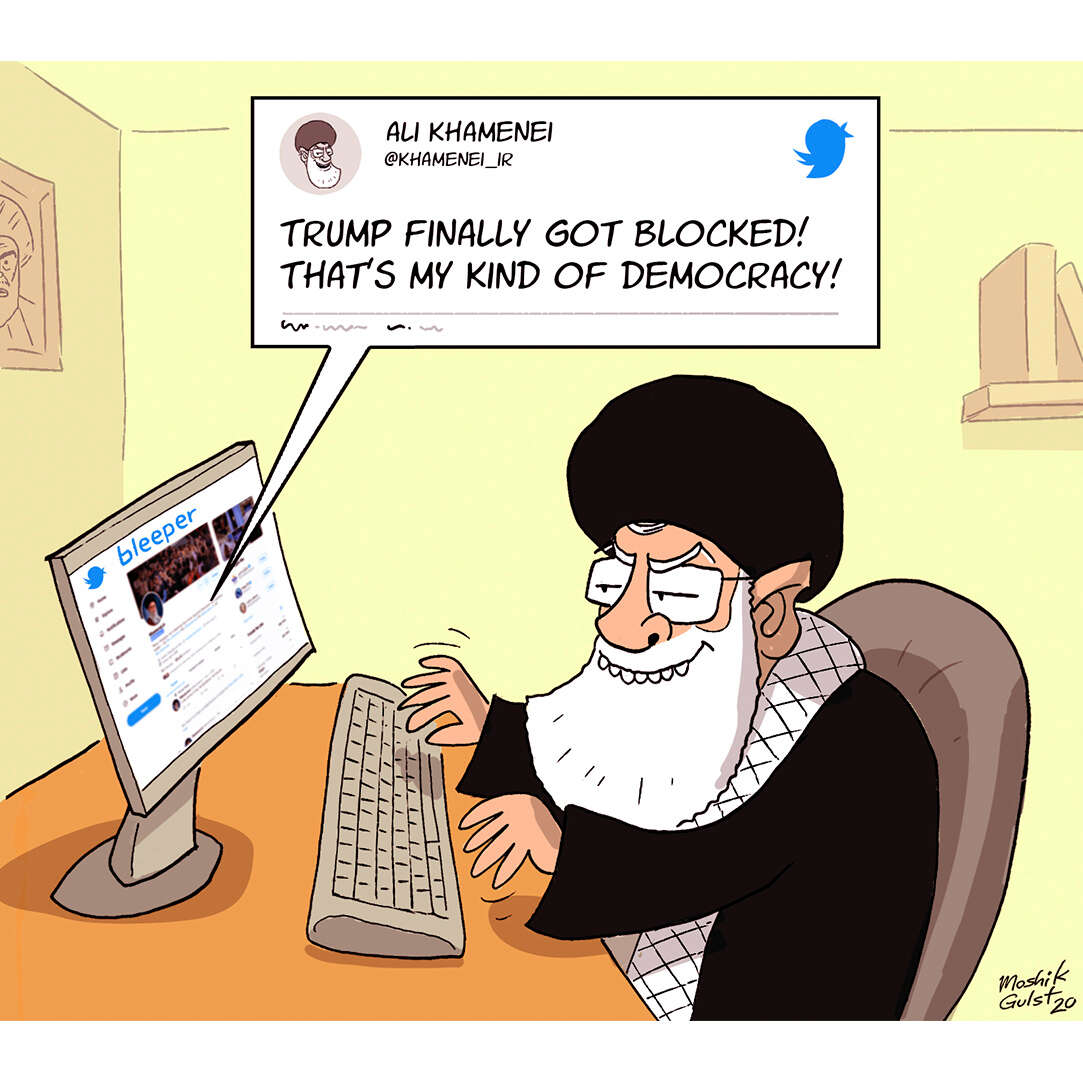What Amnesty International gets wrong about Israel’s vaccine programme
Meanwhile, the Ramallah administration was lagging behind. Having squandered sackfuls of public money over the years on everything from mansions for its leaders to payments for terrorists, while propped up by billions of aid dollars, its finances were not in good shape. And it suffered from a fundamental lack of coordination between different arms of the government.The Media’s New Anti-Israel Slander — Vaccines
Corruption, factionalism, a lack of proper elections – Mahmoud Abbas is currently 16 years into a four-year term – and incompetence had resulted in a government that often struggled to meet the basic needs of its citizens.
Speaking off-the-record as Israel moved towards vaccinating a million-and-a-half people, a senior PA official said earlier this week that given the sluggish progress, he would not rule out asking the Jewish state for help. When asked whether he had done so already, he paused before muttering: ‘yes and no’.
In truth, Palestinian liaison officials had already quietly contacted Israel’s Coordination of Government Activities in the Territories (COGAT) department to request the vaccine. The Israelis had agreed to help. Assisting the Palestinians made sense, since it was vital to maintain a degree of goodwill in coordination between the two sides on the West Bank.
According to Israel’s state broadcaster, ‘dozens’ of doses were then secretly delivered into Palestinian hands, enough for the most prominent members of the leadership – though exactly who received the jabs remains unknown. The operation was shrouded in secrecy. Partly, this was due to Palestinian shame at going cap-in-hand to Israel. Partly, it was to avoid appearing nepotistic and incompetent to ordinary Palestinians who were waiting with mounting frustration for news about the vaccine.
The Palestinian Ministry of Health had no idea about the secret delivery. In a statement, it denied that the episode had taken place. Then, in a sign of the confusion at the heart of government in Ramallah, it conceded that Israel had made an ‘informal’ offer of 20 doses on a trial basis – though it claimed that the Palestinians had turned the proposal down.
Seen in this light, the picture bears little resemblance to the narrative pushed by the likes of Amnesty International. The Palestinians neither expected nor requested help from Israel. They held no sense of grievance, even as hand-wringing commentators from overseas sought to stir up resentment by reporting that a great injustice had been done.
Palestinians appear to be seen by some as an infantilised people in need of Western intervention. But this is certainly not how they see themselves.
Israel’s extraordinary success in speedily vaccinating its population has been lauded globally. As of this writing, almost 13% of Israelis have already received the first COVID-19 vaccine — well over a million people in just a couple of weeks.Amb. Alan Baker: Is J Street Misrepresenting Its Real Mission?
However, while many in the media are looking at Israel’s vaccination drive as an example to be followed, others are using it as one more excuse to bash the Jewish state.
Media outlets including the Washington Post, NPR, and the notoriously anti-Israel British paper The Guardian have run spurious and arguably libelous headlines asserting that Israel is preventing Palestinians from being vaccinated. “Palestinians excluded from Israeli Covid vaccine rollout as jabs go to settlers” read one Guardian headline.
Unfortunately, due to the media’s obsession with proving Israel’s bad faith and the Palestinians’ victimhood, they cannot praise Israel without a backhanded snipe at the Jewish state.
However, the truth of the matter is that this story about Israel supposedly withholding coronavirus vaccines is simply another malicious media attack.
First, regardless of all the good that Israel does in the world, inevitably the haters step forward to paint Israel as evil. They cannot afford for Israel to receive credit, because it will demolish the fallacious anti-Israel foundations they have built.
Former Knesset member Einat Wilf put it best on Twitter when she wrote: “Israel advances status of GBTQ? ‘Pinkwashing.’ Israelis lead world as vegans? ‘Veganwashing.’ Israel sets up first mobile hospital in devastated Haiti? ‘Harvesting organs.’ Israel is global vaccination leader? ‘What about Palestinians?’”
According to its website, the Congressional lobbying organization calling itself “J Street” was established “to serve as the political home and voice for pro-Israel, pro-peace Americans” through “organizing pro-Israel and pro-peace Americans to promote U.S. policies that embody our deeply held Jewish and democratic values and that help secure the State of Israel as a democratic homeland for the Jewish people.”
In its founding aims and principles, J Street declares its overriding aim as “reshaping political perceptions of what it means to be pro-Israel.”
The first and evidently central provision of J Street’s basic principles acknowledges that Israel faces enemies, and J Street expresses support for Israel to defend itself and live in security and peace within internationally recognized boundaries.
However, J Street’s political manifesto detailed on its website would appear to run counter – and even to undermine – any such sentiments.
On the one hand, J Street presents itself and is perceived by many naïve elements within the Jewish and non-Jewish communities as a genuine lobbying organization with the veneer of supporting Israel and expressing concern for its welfare. But, on the other hand, one can nevertheless see, behind the misleading platitudes and sweeping statements in its manifesto, that J Street’s substantive political viewpoint is openly radical and partisan, identifying itself clearly with the Palestinian narrative, and aligning itself with other openly critical-of-Israel organizations such as the Israel Policy Forum, Brookings, and the International Crisis Group. J Street has failed to welcome and promote the normalization agreements between Israel and Arab states, apparently because they downgrade the urgency J Street feels for a Palestinian state. The organization has actively lobbied against military aid to those Arab states that normalized relations.






























.jpeg)



